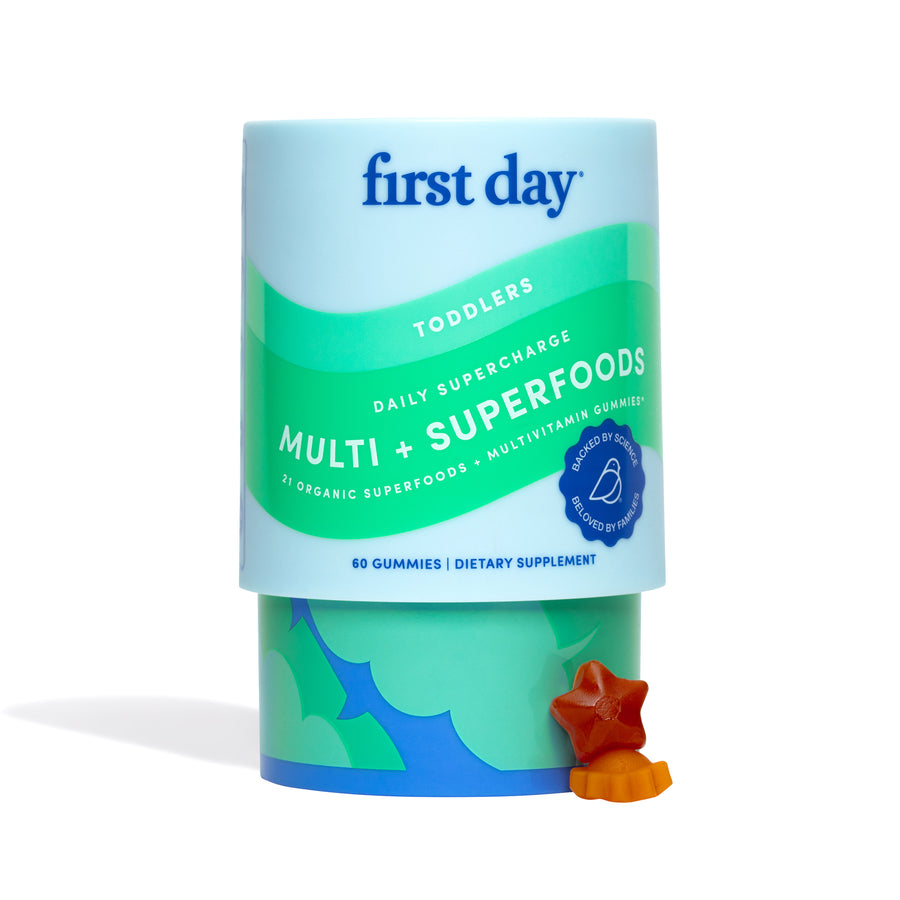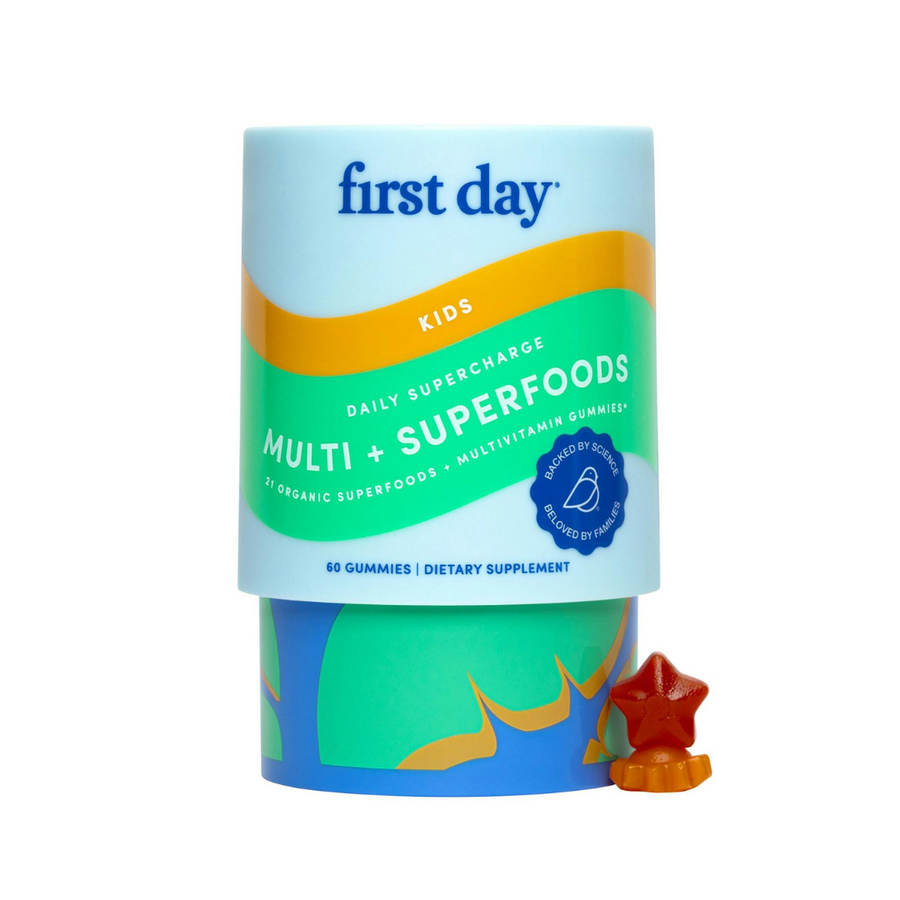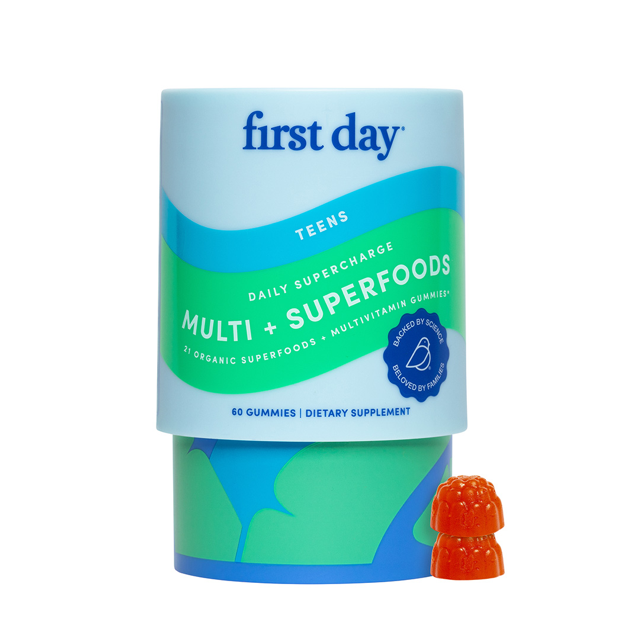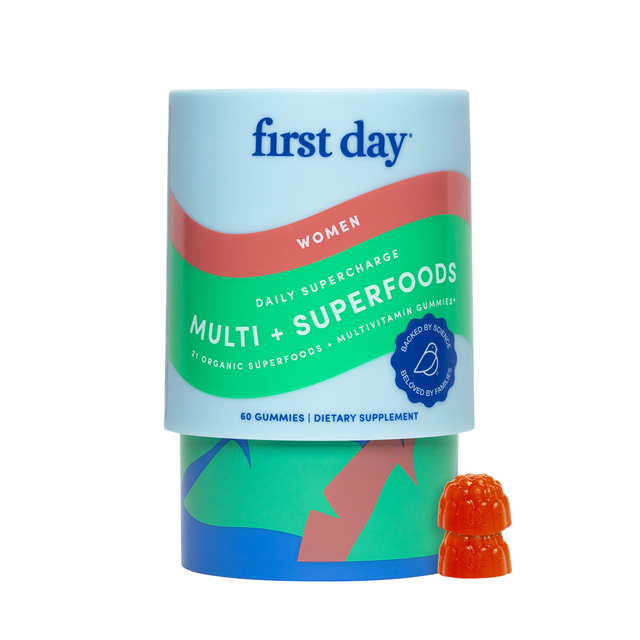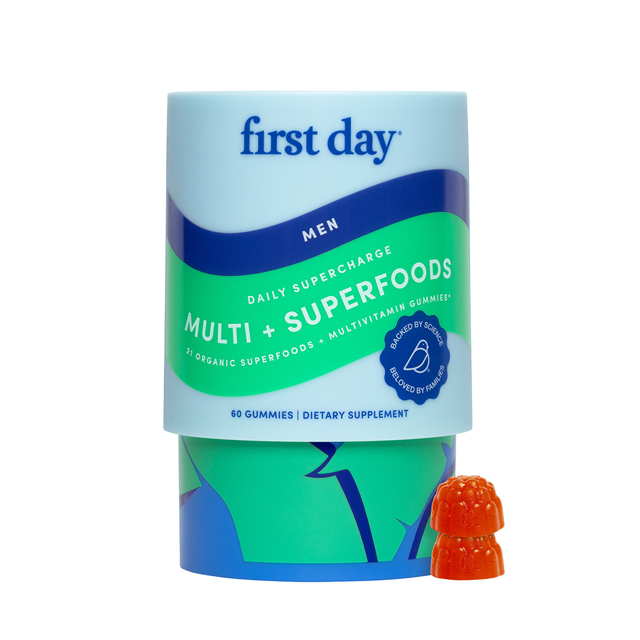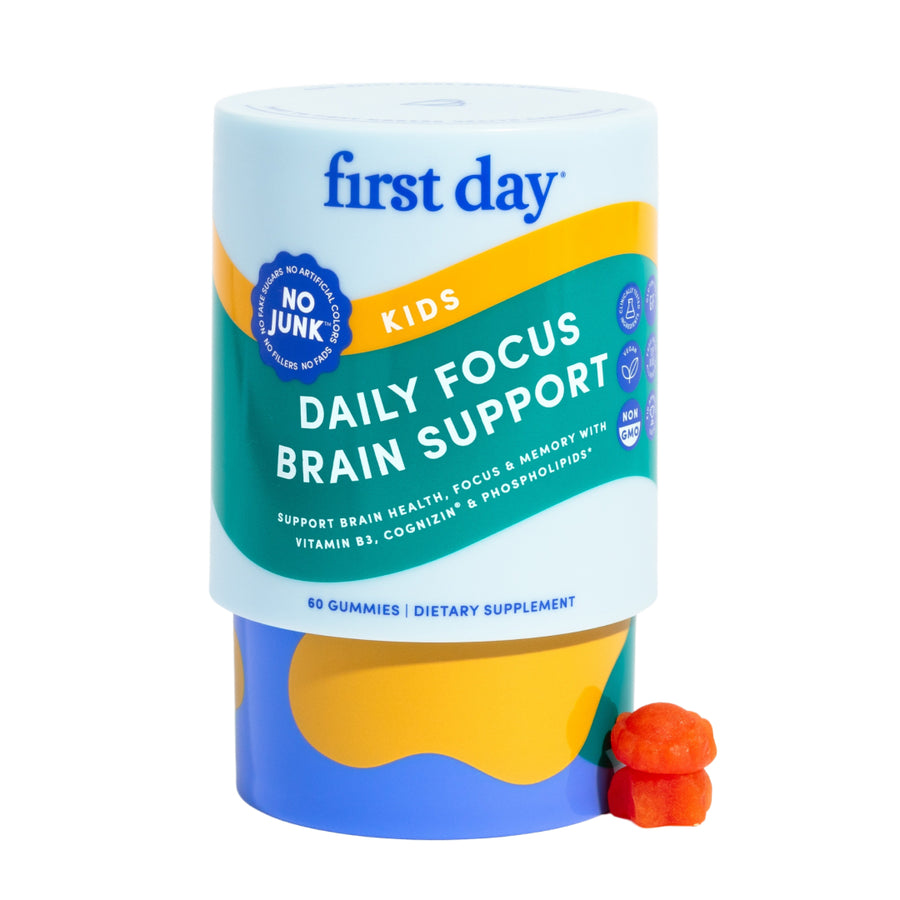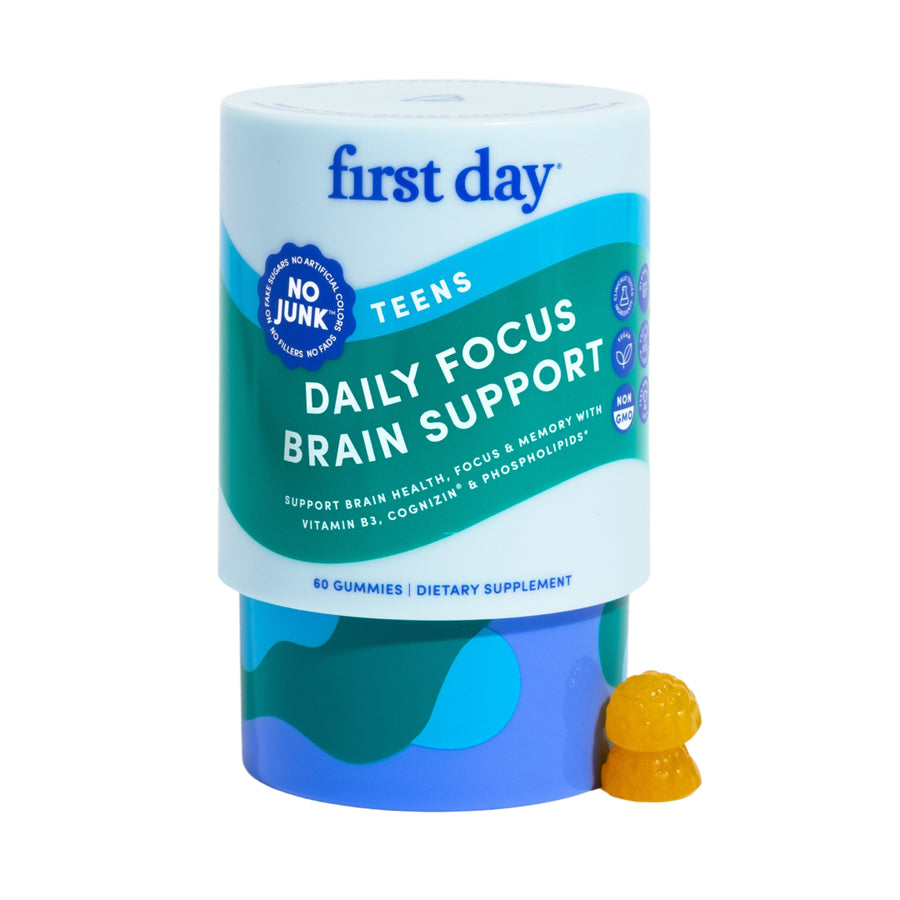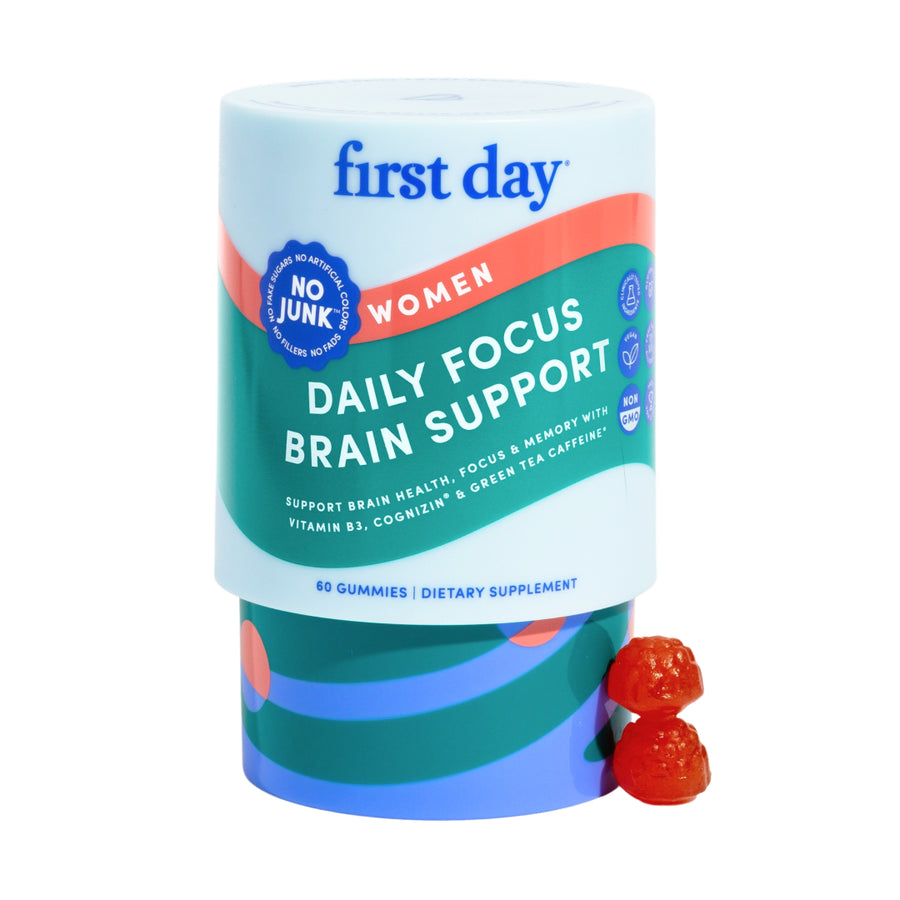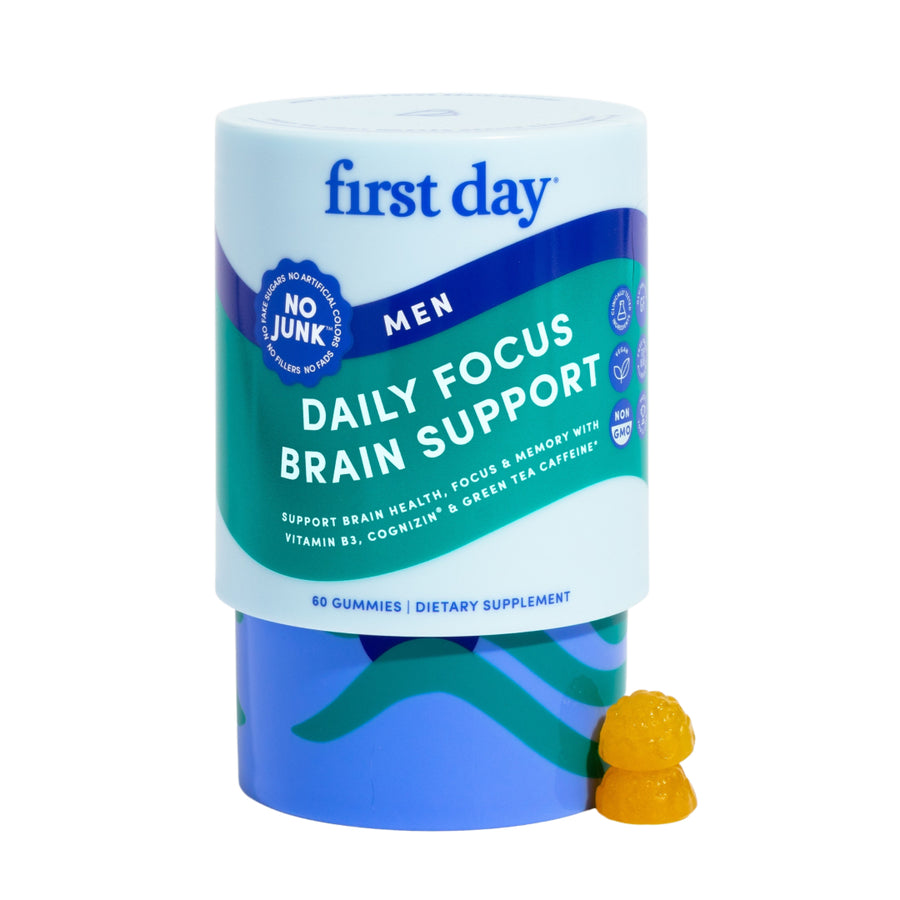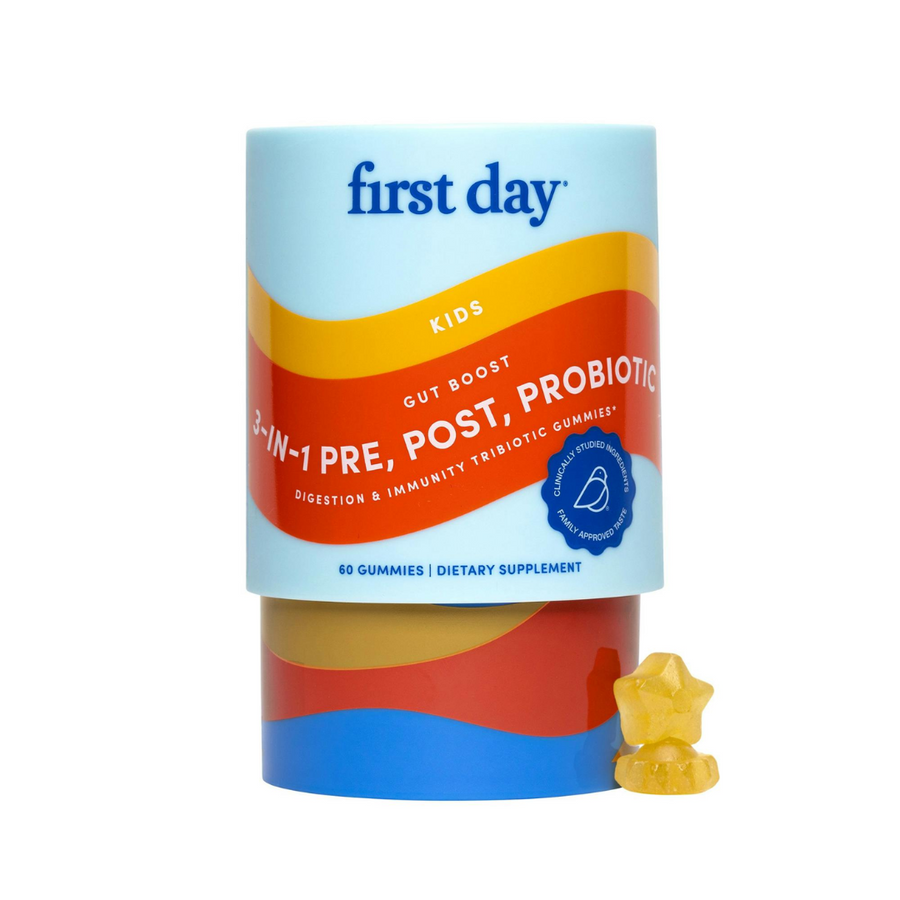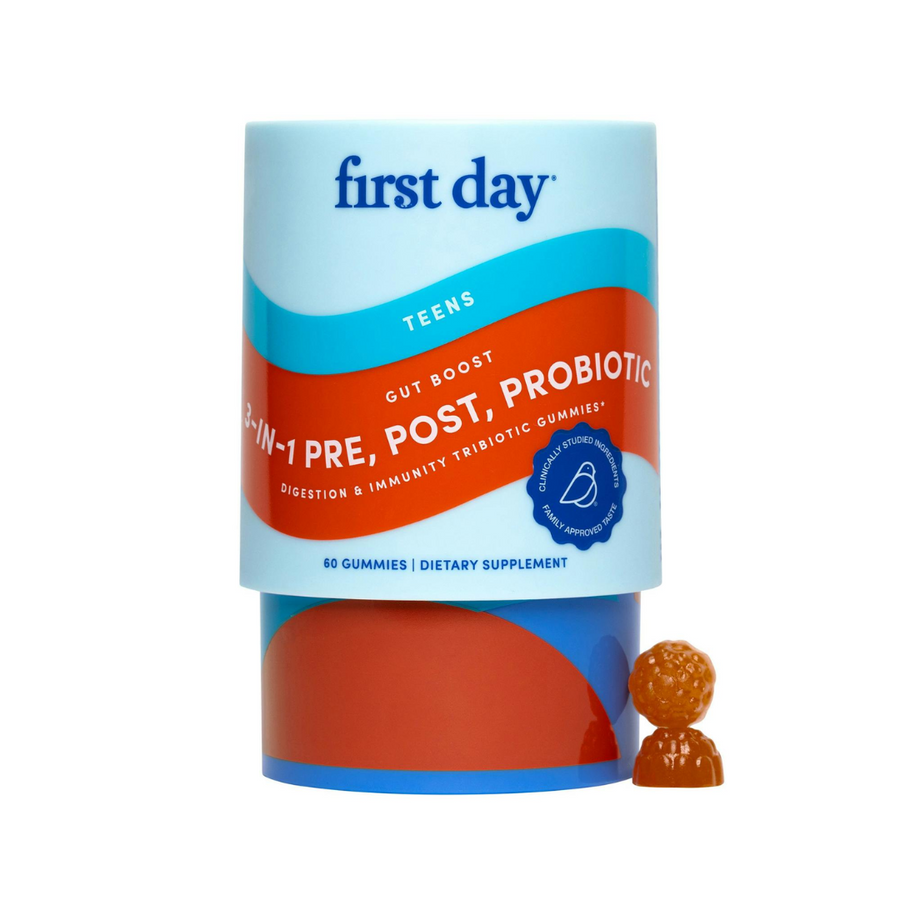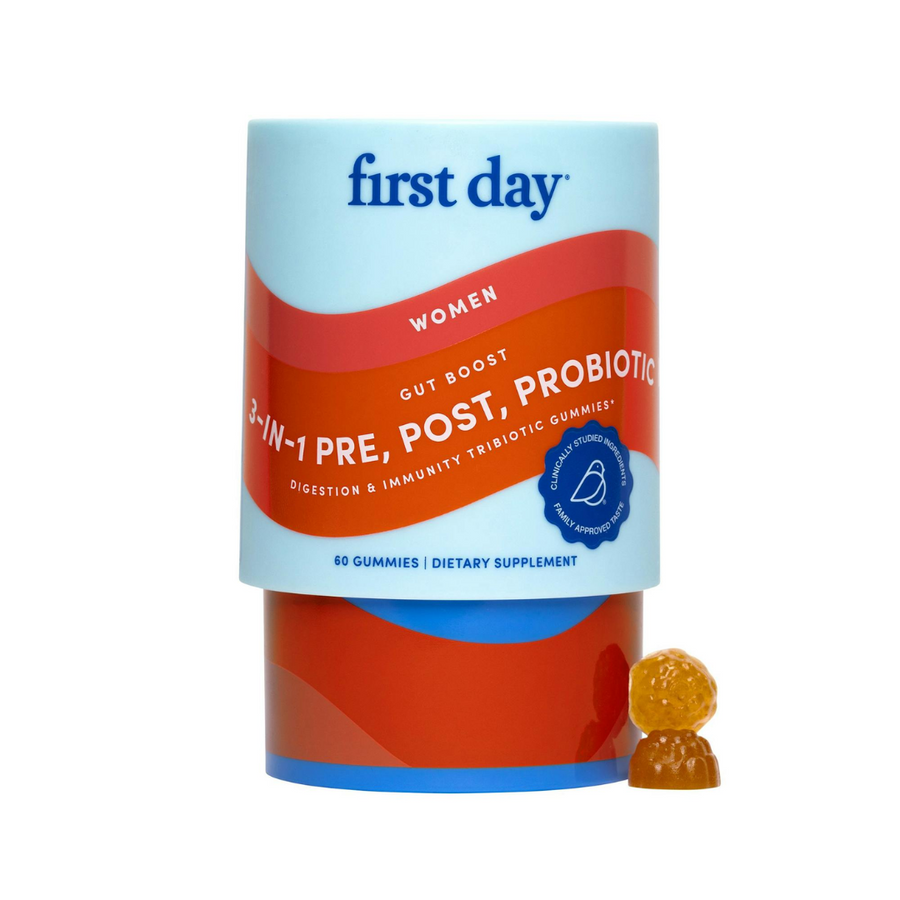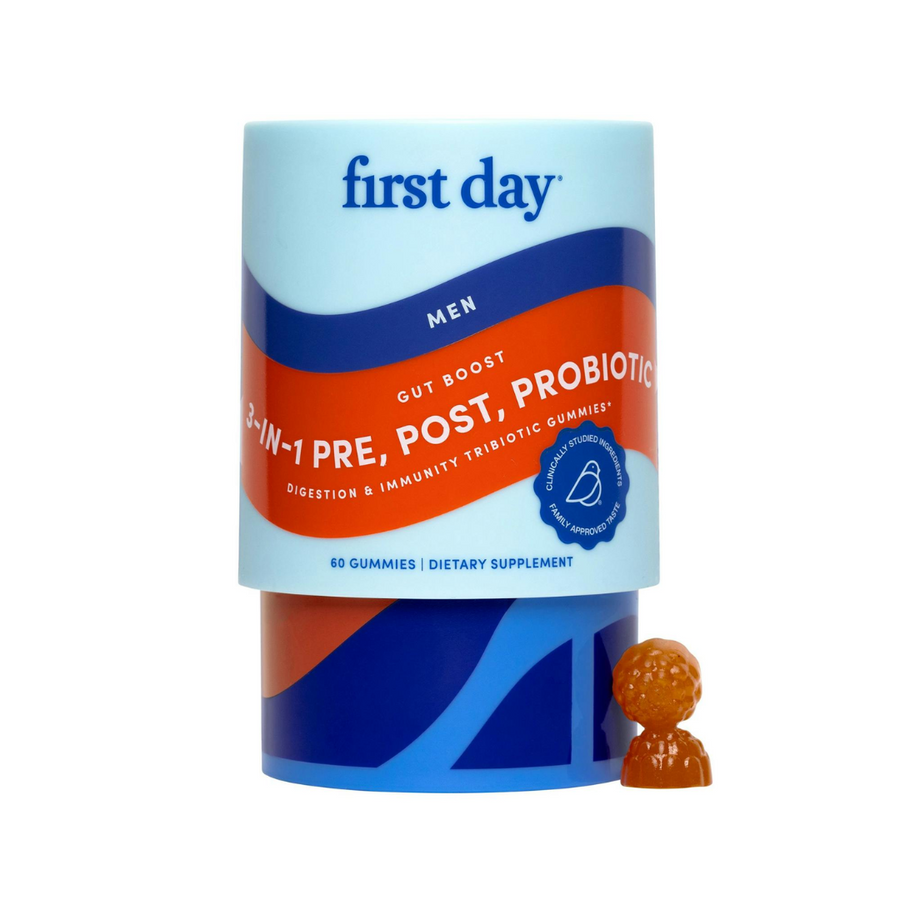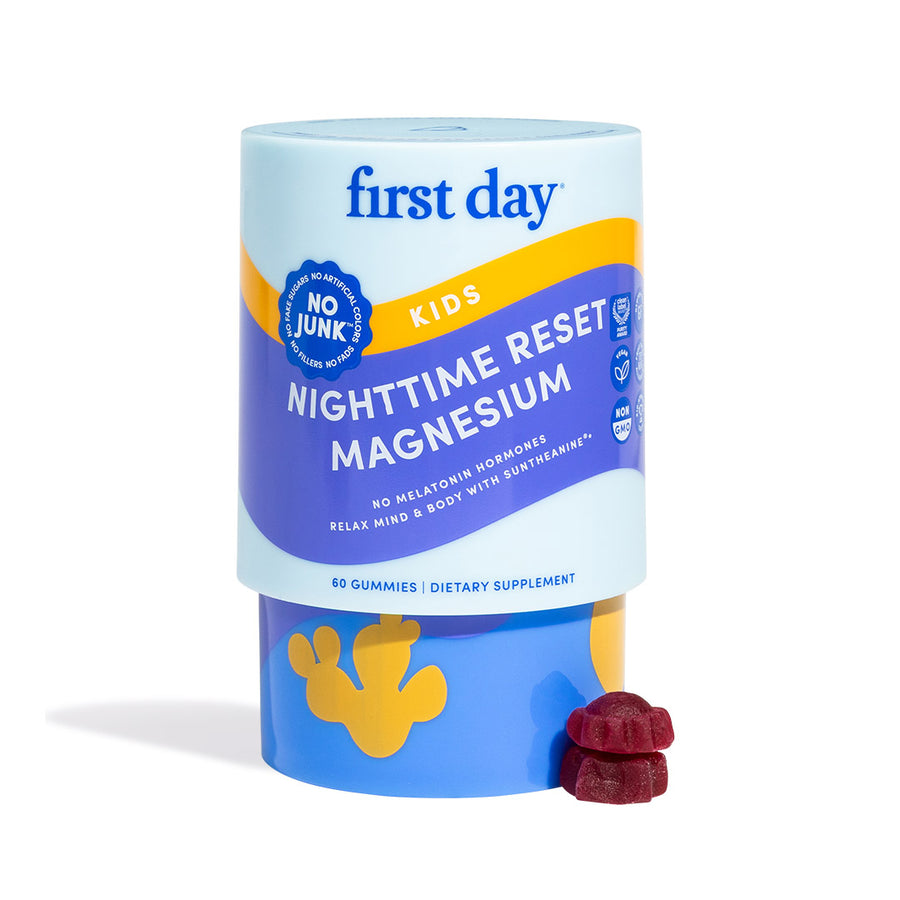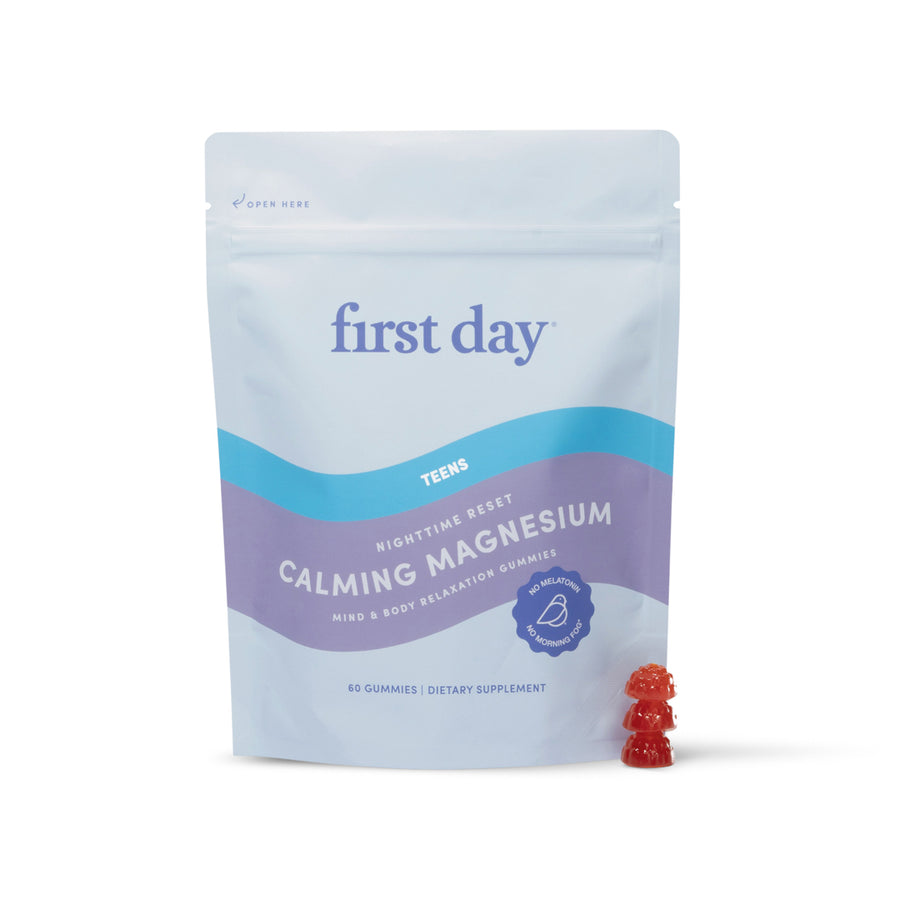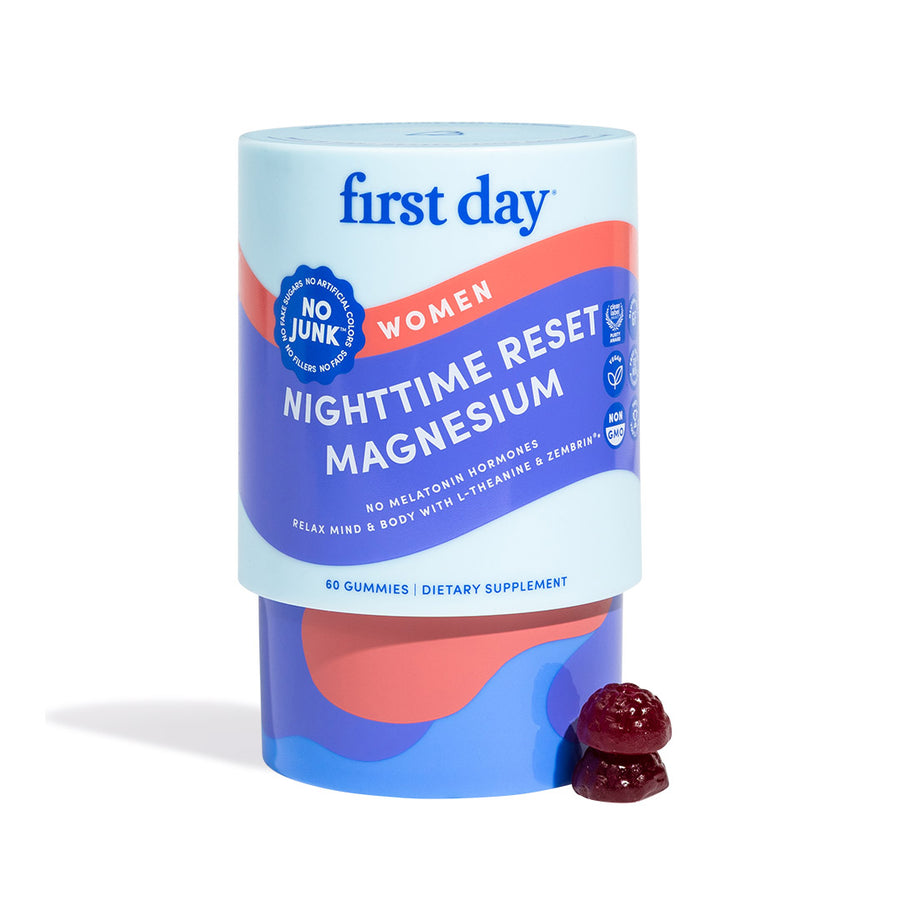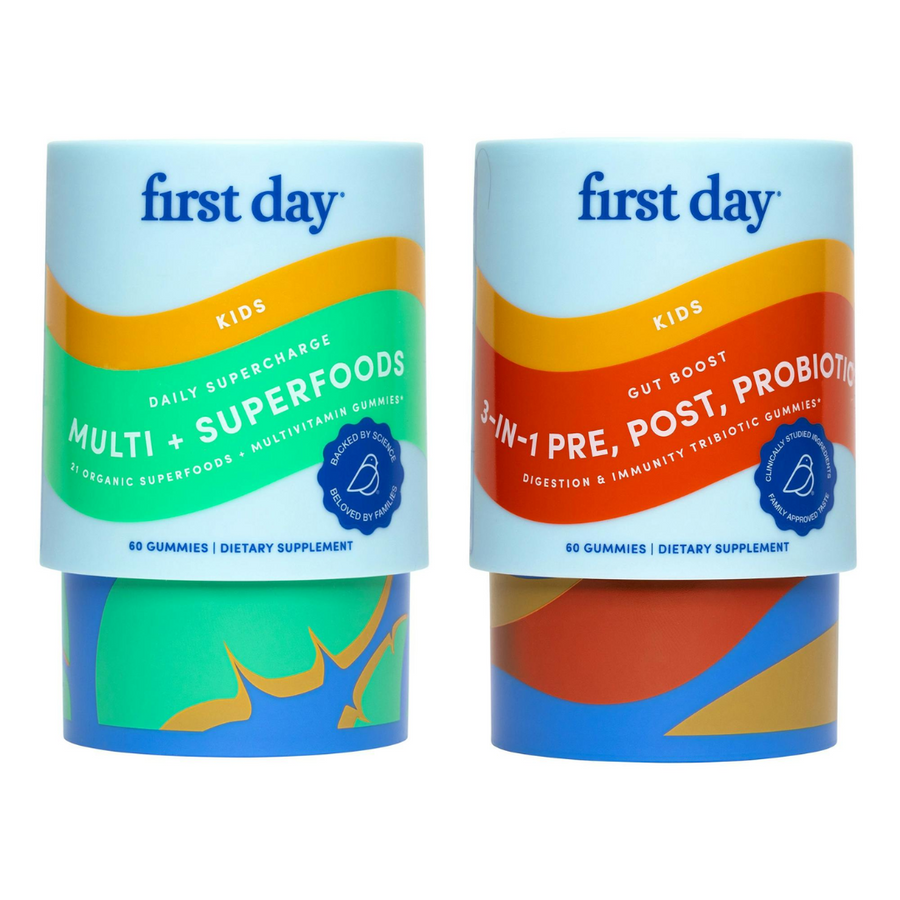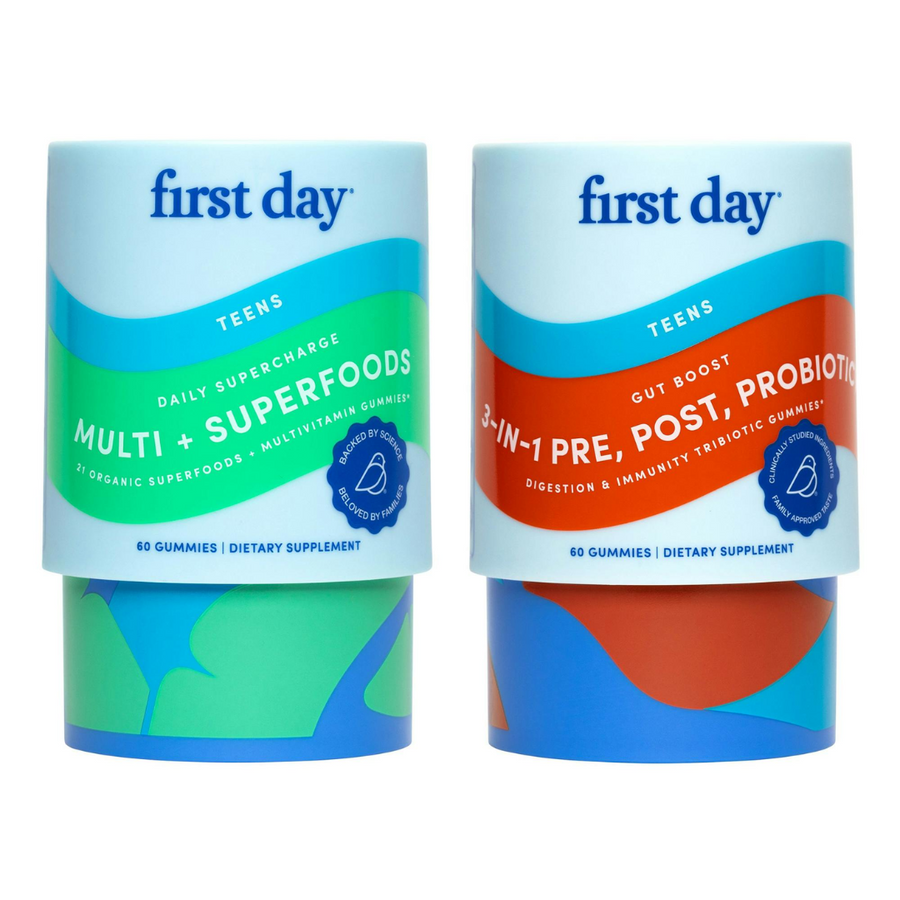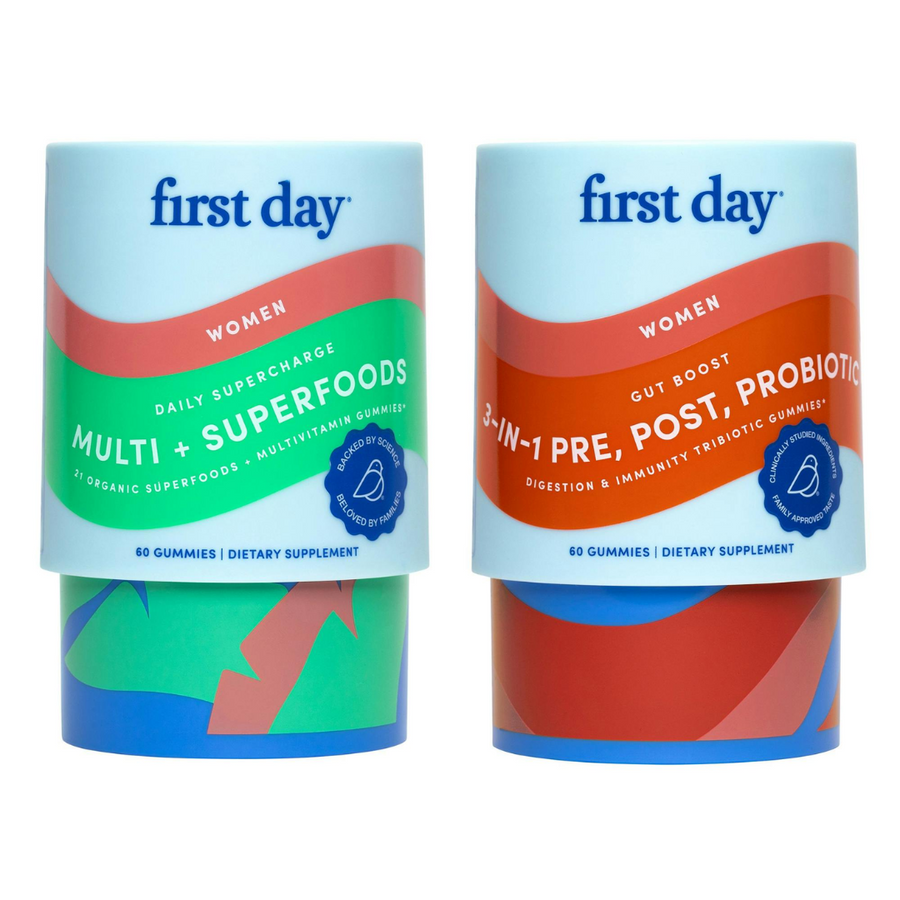Life with kids can be an exciting adventure. But if you're raising a child with ADHD, it can sometimes feel like a high-speed roller coaster. We understand – you've got a lot on your plate, and you want the best for your little one.
You may be wondering: Are there natural ways to help ADHD? Well, let's delve into how effective are natural vitamins for overactive kids. These natural ways to help ADHD can complement other forms of treatment.
But, as you know, natural vitamins are not a replacement for medication. But they can be valuable allies in your journey to support your child's well-being.
As always, please consult with your doctor before starting any new regimen for your kids.
So, without further ado! Let's explore if there are natural ways to help ADHD.
What Is Hyperactivity?
Imagine your child as a bundle of endless energy, always on the move, and ready for the next adventure. Hyperactive kids tend to be extra active compared to their peers.
They may have trouble sitting still or being quiet when it's time to relax. They often rush through tasks and might make a few slip-ups along the way. Climbing, jumping, and playing too rough can be their jam, even in situations where it's not the best idea.
Plain and simple, it's not their fault. But sometimes, their boundless energy can cause a bit of chaos for those around them.
But remember, only doctors can tell if someone has ADHD after carefully examining them in a clinical setting.
What Causes Hyperactivity?
Sometimes, hyperactivity happens because of how our brains are wired. This is especially true if their parents showed similar behavior. This is because studies show that ADHD can be hereditary, that is, kids can inherit the gene from their parents.
Also, eating foods with loads of sugar and additives (like colors and preservatives) can make kids feel hyper in the moment. However, studies show that eating tons of sugar does not cause ADHD.
The Best Vitamins for Overactive Kids
When it comes to what vitamins help with ADHD, you must choose ones that are good quality and come from trusted sources. This way, you know you're giving your child the best support.
Remember, these vitamins and supplements are like helpers, but they can't do it all. Eating well, getting enough sleep, and lots of love and support are also essential. With the help of your doctor, you can create a plan that suits your energetic child!
Vitamin B6
Research shows that kids with ADHD who took Vitamin B6 were less hyperactive and more focused. This is because B6 helps with creating tiny messengers called neurotransmitters. Neurotransmitters, such as serotonin, dopamine, and norepinephrine, help their brain function well.
Vitamin B12
Lower vitamin B12 levels in kids are linked to higher hyperactivity and impulsivity. This means if they don't get enough, they might feel restless. Making sure they get plenty of B12 can help with their behavior and focus.
Vitamin C
Vitamin C isn't only for keeping the colds away – it’s one of the best natural vitamins for overactive kids. Like the B vitamins, vitamin C helps the brain work better making more neurotransmitters. Plus, It allows your child to absorb iron better, which is super important for staying focused and alert. So, giving your child foods with Vitamin C is always a good idea.
Magnesium
Coupled with Vitamin D, Magnesium can help to calm and soothe your overactive child. Studies also show that it allows them to get a good night’s rest while improving school performance.
Zinc
Zinc helps your child pay attention and remember things better. Like the other natural vitamins for overactive kids, zinc helps produce neurotransmitters. Some studies say kids with ADHD tend to have lower zinc levels. So making sure they get enough is a smart move.
Iron
Iron carries oxygen to the brain. When the brain gets enough oxygen, it's easier to stay calm and focused. Plus, some studies show that lower iron levels are connected to ADHD. Foods like meat and beans are full of iron, so include them in your child's diet.
Omega-3 Fatty Acids
Omega-3 fatty acids make it easier for your child to concentrate. Some studies even say Omega-3 could help with ADHD symptoms such as inattention. You can find them in foods like salmon and walnuts.
L-theanine
L-theanine is a tiny part of a protein found in teas like green tea and black tea, plus mushrooms and chicken. It can also help with ADHD symptoms. A small research study found that L-theanine might help kids with ADHD concentrate better and think more clearly.
Ashwagandha
Studies show that ashwagandha, an herb, might help your child feel less stressed and anxious. Less stress can mean better focus and mood. While we need more research, some parents have found it helpful.
How to Take Natural Vitamins for Energetic Kids

So, you've decided what vitamins help with ADHD. And you’re ready to add it to your kids’ diet or routine. Great! But how do you do it the right way? Let's keep it simple:
Write Down What Your Family Eats
First, write down what your family eats every day. Tools like food diaries, such as Cronometer, can make this easier. This helps you see what vitamins might be missing in your child's diet. Maybe they don't eat fish, so they miss out on Omega-3 fatty acids. Knowing this helps you pick the right vitamins.
Find Vitamins that Fill the Gaps
Now, look for multivitamins and supplements to fill those gaps. If your child doesn't eat enough fruits and veggies, Vitamin C supplementation might be helpful. Did you know that around 70% of kids in the U.S. don't get enough Vitamin D? That's a lot! So, supplements can help close that gap and support their health. Choosing a high-quality multivitamin like First Day’s Kids Daily Essentials ensures that the most common deficiencies are being addressed.
Don't Overdo It
Here's the thing: too much of a good thing isn't good anymore. You must keep in mind that you don't necessarily need to aim for vitamin intakes that exceed 100% of the recommended daily values. The reason is that your kids also get some of these essential vitamins from the foods they consume. Taking way too many vitamins, exceeding these recommended values can lead to trouble. For example, taking too much Iron can upset your tummy and make you feel sick.
To make sure you're on the right track, chat with your child's doctor or a nutrition expert. They'll help you choose the right vitamins based on your child's needs and make sure you don't go overboard.
So, remember, it's like a puzzle. Figure out what's missing and find the right pieces (vitamins). But don't use too many pieces, or the puzzle won't work right. With some help, you'll create a plan that's perfect for your energetic kids.
FAQs
You're on the right path to making the best choices for your active child with natural vitamins. Fantastic! But you might have some questions popping up in your mind. No need to fret – we've got the answers you need!
What Are the Side Effects of Natural Vitamins for Overactive Kids?
Natural vitamins are usually safe when taken as recommended. But, taking too much of certain vitamins or minerals can lead to tummy troubles or other problems. That's why you must stick to the recommended doses shown on the labels. Also, chat with your child's doctor to make sure everything is okay.
How Long Does It Take for Natural Vitamins to Work?
Patience is the name of the game! Vitamins don't work like magic – they need time. Some kids might see changes in a few weeks, while others might take longer. It all depends on your child and the specific vitamins they're taking. Be consistent and give it time.
Can Natural Vitamins Be Used in Combination With Medication?
Absolutely! Natural vitamins can be like teamwork buddies for medication. But always talk to your child's doctor before mixing them. Your doctor can help you find the right balance between vitamins and medicine.
What Are Some Other Natural Ways to Help With Hyperactivity?
Vitamins aren't the only solution! You need other healthy habits. A balanced diet with lots of fruits, veggies, and whole grains is super important. Good sleep, regular exercise, and a structured routine can also make a big difference. And don't forget the power of your love and support – it's the most natural remedy of all!
Embracing the Adventure: Natural Ways to Help ADHD
Raising a lively child, especially one with ADHD, can be an adventure. But this guide has shown that there are natural ways to help them do well.
While natural vitamins can be little helpers, keep in mind they can't replace medicine. Understand what causes hyperactivity, pick the right vitamins, and add other natural methods like a good diet and sleep. And don't forget, always talk to your child's doctor for personalized advice. With care and a balanced plan, you can make a big difference in your child's life.
References:
NHS. (2018, June 1). Attention deficit hyperactivity disorder (ADHD) - Causes. Nhs.uk. https://www.nhs.uk/conditions/attention-deficit-hyperactivity-disorder-adhd/causes/#:~:text=Genetics
Kim, Y., & Chang, H. (2011). Correlation between attention deficit hyperactivity disorder and sugar consumption, quality of diet, and dietary behavior in school children. Nutrition Research and Practice, 5(3), 236. https://doi.org/10.4162/nrp.2011.5.3.236
Mousain-Bosc, M., Roche, M., Polge, A., Pradal-Prat, D., Rapin, J., & Bali, J. P. (2006). Improvement of neurobehavioral disorders in children supplemented with magnesium-vitamin B6. I. Attention deficit hyperactivity disorders. Magnesium Research, 19(1), 46–52. https://pubmed.ncbi.nlm.nih.gov/16846100/
Yektaş, Ç., Alpay, M., & Tufan, A. E. (2019). Comparison of serum B12, folate and homocysteine concentrations in children with autism spectrum disorder or attention deficit hyperactivity disorder and healthy controls. Neuropsychiatric Disease and Treatment, Volume 15, 2213–2219. https://doi.org/10.2147/ndt.s212361
Best ADHD Supplements & Vitamins For Kids With ADHD | Drake Institute. (n.d.). Www.drakeinstitute.com. Retrieved October 6, 2023, from https://www.drakeinstitute.com/supplements-and-vitamins-for-adhd#:~:text=Vitamin%20B%20%26%20C
Askari, G., Hemamy, M., Heidari-Beni, M., Karahmadi, M., & Maracy, M. (2020). Effect of Vitamin D and magnesium supplementation on behavior problems in children with attention-deficit hyperactivity disorder. International Journal of Preventive Medicine, 11(1), 4. https://doi.org/10.4103/ijpvm.ijpvm_546_17
Mousain-Bosc, M., Siatka, C., & Bali, J.-P. (2011). Magnesium, hyperactivity and autism in children (R. Vink & M. Nechifor, Eds.). PubMed; University of Adelaide Press. https://www.ncbi.nlm.nih.gov/books/NBK507249/
Arnold, L. E., DiSilvestro, R. A., Bozzolo, D., Bozzolo, H., Crowl, L., Fernandez, S., Ramadan, Y., Thompson, S., Mo, X., Abdel-Rasoul, M., & Joseph, E. (2011). Zinc for Attention-Deficit/Hyperactivity Disorder: Placebo-Controlled Double-Blind Pilot Trial Alone and Combined with Amphetamine. Journal of Child and Adolescent Psychopharmacology, 21(1), 1–19. https://doi.org/10.1089/cap.2010.0073
Bener, A., Kamal, M., Bener, H., & Bhugra, D. (2014). Higher prevalence of iron deficiency as strong predictor of attention deficit hyperactivity disorder in children. Annals of Medical and Health Sciences Research, 4(9), 291. https://doi.org/10.4103/2141-9248.141974
Derbyshire, E. (2017). Do Omega-3/6 Fatty Acids Have a Therapeutic Role in Children and Young People with ADHD? Journal of Lipids, 2017, 1–9. https://doi.org/10.1155/2017/6285218
Kahathuduwa, C. N., Wakefield, S., West, B. D., Blume, J., Dassanayake, T. L., Weerasinghe, V. S., & Mastergeorge, A. (2020). Effects of l-theanine–caffeine combination on sustained attention and inhibitory control among children with ADHD: a proof-of-concept neuroimaging RCT. Scientific Reports, 10(1), 13072. https://idp.nature.com/authorize?response_type=cookie&client_id=grover&redirect_uri=https%3A%2F%2Fwww.nature.com%2Farticles%2Fs41598-020-70037-7
Singhal, H. K., Neetu, Kumar, A., & Rai, M. (2010). Ayurvedic approach for improving reaction time of attention deficit hyperactivity disorder affected children. Ayu, 31(3), 338–342. https://doi.org/10.4103/0974-8520.77169
Krati Chauhan, & Huecker, M. R. (2019, October 21). Vitamin D. Nih.gov; StatPearls Publishing. https://www.ncbi.nlm.nih.gov/books/NBK441912/
Sunkara, T., Caughey, M. E., Nigar, S., Olivo, R., & Gaduputi, V. (2017). Iron Pill Gastritis: An Under Diagnosed Condition With Potentially Serious Outcomes. Gastroenterology Research, 10(2), 138–140. https://doi.org/10.14740/gr804w

